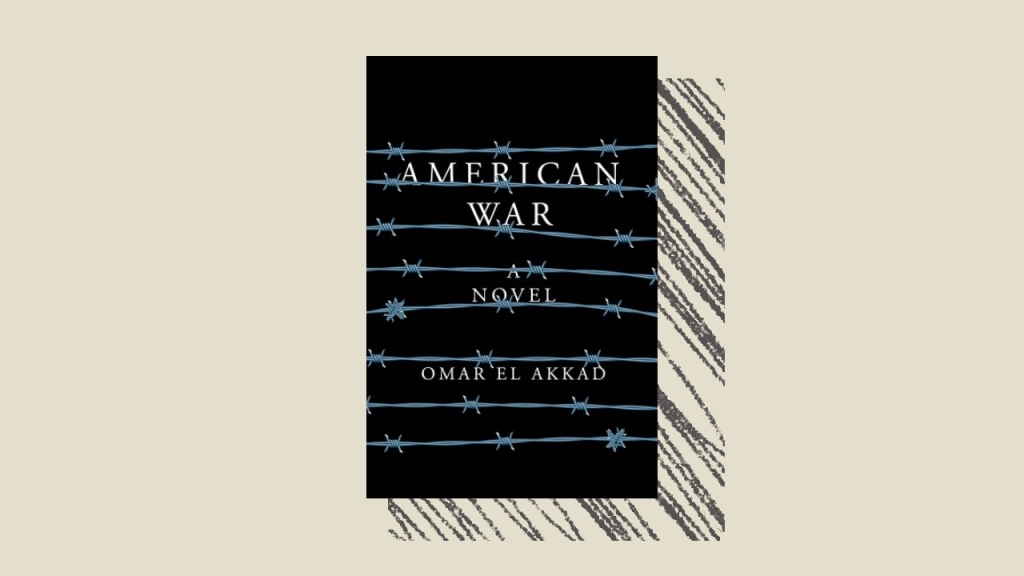I used to see the hardcover of this book on our New Releases table at the bookstore, and loved the cover. I was drawn in by the idea of an Arab-American take on American dystopia. I was obsessed with science fiction at the time, so this book has stayed in the back of my mind for the last several years.
In American War’s US, the South’s dependence on oil leads to a civil war. The book takes place in the latter half of the 21st century, between the 2070s and 2090s. The book starts with a map, which I really like, detailing the new Mason-Dixon, Mexico’s presence in the Southwest, etc. In addition, the entirety of the Middle East has merged into one empire.
Sarat, the main character, is born along the river in Louisiana. At a young age, her father dies while attempting to get a certificate to work in the North. As the war threatens to encroach on their property, Sarat’s mom takes her son and two daughters and moves them to a Southern refugee camp. Sarat is repeatedly assaulted by death of family members, trauma, attempted genocide, kidnap, torture, and double-crossing, until she mentally (and physically) shifts into a space that allows little joy. She is dead set on revenge.
Spoiler-ish: There’s a great scene at the end of the book where a Southern political figure tells her, “you’ll be celebrated by the South for what you’re about to unleash in the north.” And she says, “fuck the South and all it stands for.” I really liked the tension between personal and political — that politicians would ultimately support the ideological cause and separate themselves from any dirty work. It felt like the most honest portrayal of Southern politicians today.
I think, at the end of the day, I’m a bit less interested in American Armageddon stories. The writing lurched a little between subtlety and stereotype. And ultimately, the main character was so repeatedly tortured by her life and surroundings, I found her story emotionally overwhelming. I do not regret reading this book, but it was not my typical read.
My favorite part was a very brief interlude in Atlanta (I think?), where Sarat gets intel from an old friend on a floating coffee shop. There are a few scenes of “post-apocalypse” culture, featuring bars, hotels, and cafes. This momentary pull into everyday life was really pleasurable to read, even though it was bookended by death and colored by the constant conversations of war. It did tell me a lot about my preferred type of dystopian/post-apocalyptic read — one that’s based in everyday life, surrounded by atrocity, but generally a degree removed.
Ultimately, in American War, war is unending. Hope is futile. Torture is endless. And death is a release — at best a political decision in the process.
